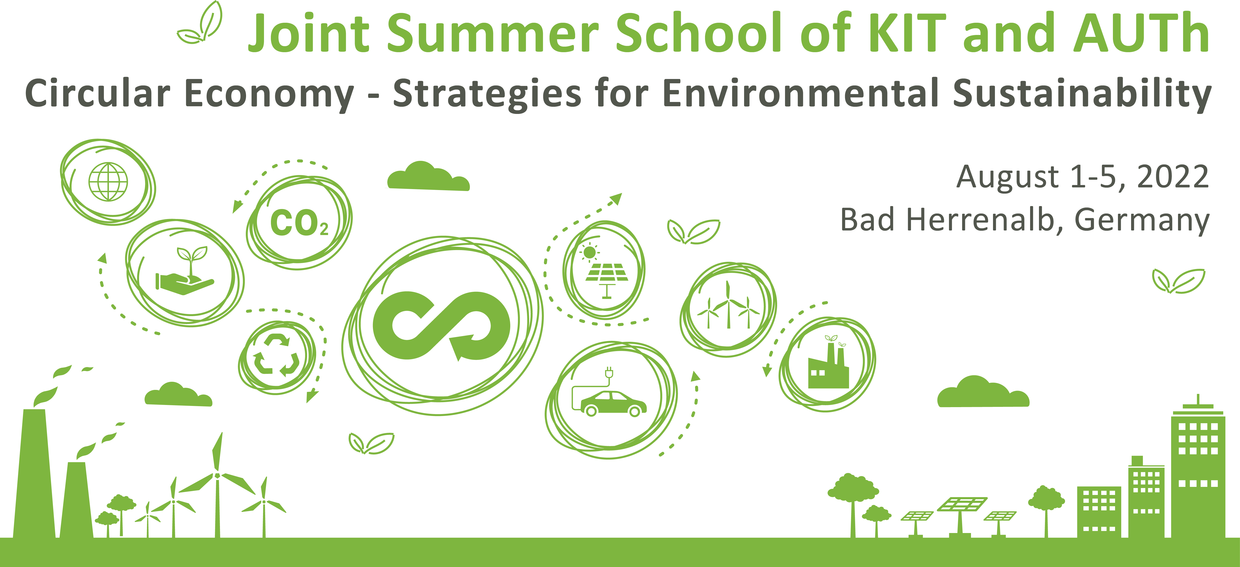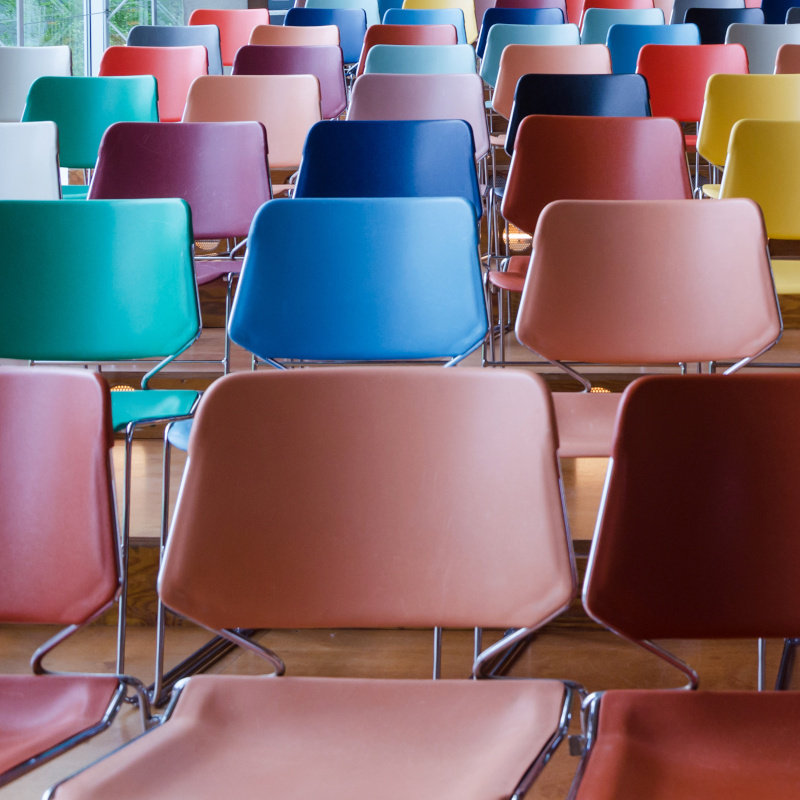Summer School 2022

Overview
This Summer School aims to give an overview of the concept and basic aspects of circular economy and the transition towards renewable energy and material use. Starting from the major environmental challenges like climate change, the loss of biodiversity and land use conflicts, which originate from our current linear economy, participants will learn the general concept of circular economy and discuss economic aspects and its implications to society and the environment. Throughout the course, experts will address different resources, their individual potentials, transition options and challenges towards a sustainable use in a future circular economy. The importance of biomass energy recovery will be discussed with regard to resilience and supply security in the energy sector. The course will be complemented by a presentation of Kalundborg Symbiosis, the world’s first industrial symbiosis with a circular approach to production.
Target Group
The Summer School addresses PhD candidates doing their research in the field of energy transition as well as renewable energy and material use, but is also intended for PhD researchers in the field of environmental and climate research, who are interested in a general introduction to this topic.
Confirmed Lecturers
| Topic | Lecturer | Institution |
| Applied circular economy through industrial symbiosis | Prof. Dr. Charisios Achillas | Department of Supply Chain Management International Hellenic University, Katerini, Greece |
| Land use conflicts and biodiversity loss caused by the exploitation of natural resources | Prof. Dr. Almut Arneth | Institute of Geography and Geoecology & Institute of Meteorology and Climate Research KIT, Germany |
| Carbon emissions and climate change | Prof. Dr. Peter Braesicke | Institute of Meteorology and Climate Research KIT, Germany |
| Concrete – new technological approaches to improve climate impact and resource efficiency | Prof. Dr.-Ing. Frank Dehn | Institute of Concrete Structures and Building Materials KIT, Germany |
| Novel concepts for circular economy in the building industry | Prof. Moritz Dörstelmann | Institute for Bulding Design and Technology KIT, Germany |
| Material flow modeling | Dr.-Ing. Simon Glöser-Chahoud | Institute for Industrial Production KIT, Germany |
| Earth’s circular processes & circular economy in a non-circular world – climate, energy, raw materials and war | Prof. Dr. Christoph Hilgers | Institute of Applied Geoscience KIT, Germany |
| The importance of metals and minerals in circular economy | Prof. Dr. Jochen Kolb | Institute of Applied Geoscience KIT, Germany |
| Circular carbon economy: Overview of CO2 capture and utilization technologies | Prof. Dr. Angeliki Lemonidou | Laboratory of Petrochemical Technology AUTh, Greece |
| Decentralised biomass utilization in the circular economy context | Dr.-Ing. Dimitrios Mertzis | Laboratory of Applied Thermodynamics AUTh, Greece |
| Industrial symbiosis at Kalundborg | Dr. Per Møller | Symbiosis Center Denmark, Kalundborg, Denmark |
| Circular economy at times of energy transition | Prof. Dr.-Ing. Nicolas Moussiopoulos | Laboratory of Heat Transfer and Environmental Engineering AUTh, Greece |
| Assessing the sustainability of innovative wastewater treatment management systems | Dr. Witold-Roger Poganietz | Institute for Technology Assessment and Systems Analysis KIT, Germany |
| Evening discussion: How would your favorite energy system look like in 2040? | Prof. Dr. Frank Schilling | Institute of Applied Geoscience KIT, Germany |
| Introduction to circular economy | Prof. Dr. Frank Schultmann | Institute for Industrial Production KIT, Germany |
Cooperation
The Summer School is organized by the Graduate School of Climate and Environment (GRACE) at the Karlsruhe Institute of Technology (KIT) in cooperation with the Aristotle University of Thessaloniki (AUTh).

Information
Date: August 1-5, 2022
Location: Haus der Kirche, Dobler Str. 51, 76332 Bad Herrenalb, Germany (Map)
Accommodation: Participants will be accommodated in single rooms directly at the venue.
Costs: The Summer School is free of charge for members of GRACE and HEPTA including full board, accommodation and travel costs. For all other participants, costs for full board and accommodation are 390 €. Students from AUTh can apply for funding through the KIT-AUTh cooperation.
Program: The final program can be downloaded here >> Program.
ECTS: 3
Application: Please apply through the registration form. The application deadline is June 26, 2022. The application deadline has been extended to July 3, 2022. Applicants who already registered will receive a notification on acceptance by June 30, 2022. Later applications will be reviewed when received.
If you have any questions, please send us an e-mail at info ∂does-not-exist.grace kit edu.

